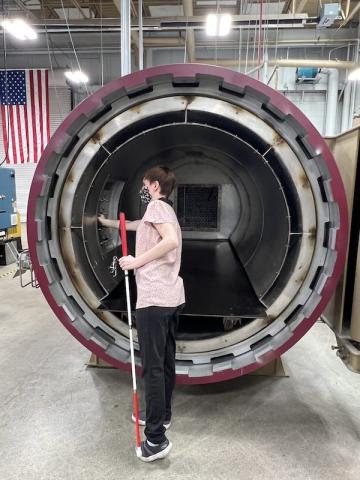The drive to create. Put simply, that’s what has propelled Marley Passey into a career in manufacturing, despite the fact that she’s legally blind. “I’ve always really enjoyed making things, building little wooden toys,” Marley says. “And this is the natural progression of that, making these really big and complex metal or composite parts. I could be making something for an F-35. That’s insane!” She’s defying the odds, and she’s not alone.

Carmen Enriquez has overcome her own set of challenges in a field dominated by men. “I would’ve never thought I would be in an industry like this that seems so complex and foreign to me,” Carmen confesses. “In high school, I thought you had to be smart and have money to go to college. I had neither, but it doesn’t matter what you start out with; it just matters how hard you’re going to work. I really wish someone had told me all I needed was the desire to learn.” Carmen may sell her younger self short, but not anymore. She recently graduated at the top of her class at Davis Technical College in Utah. She and fellow classmate Marley are both defying the odds, and they have the beaming smiles to prove it.
Marley shares, “It’s incredible. I’m a pioneer. It’s so cool. This is something I never thought I could do before.” Carmen sums up her mindset, “I just feel like I can do anything!”
How They Started
About five years ago, IACMI identified Davis Tech as a best-in-class program and partnered with them to establish a national network for Advanced Composites Career Pathways (ACCP). The goal was to develop a skilled advanced composites manufacturing workforce throughout the country, with a focus on creating accessible pathways to learning and employment opportunities for everyone.
Educators at Davis Tech wanted to reach a more diverse set of students, including those with visual impairments, who are often overlooked but are considered an untapped resource. They started by checking out innovative workforce programs, such as Lighthouse for the Blind, Inc. in Seattle, Washington. Lighthouse manufactures over 3.4 million products for aerospace and government customers. It has been serving the blind and DeafBlind communities for over 100 years.

